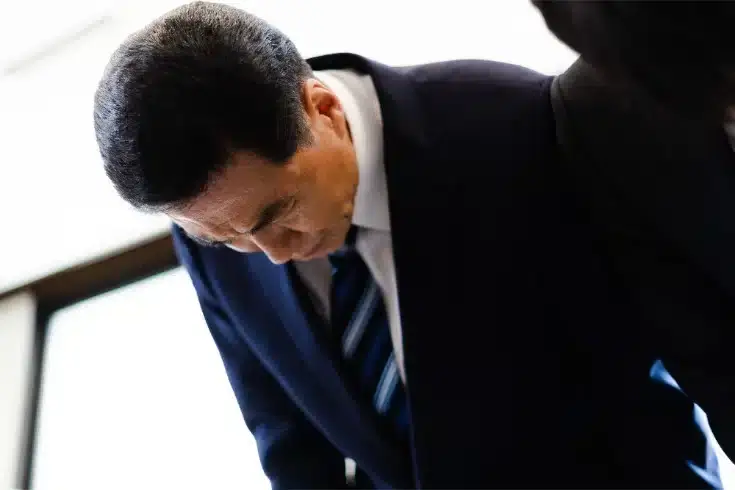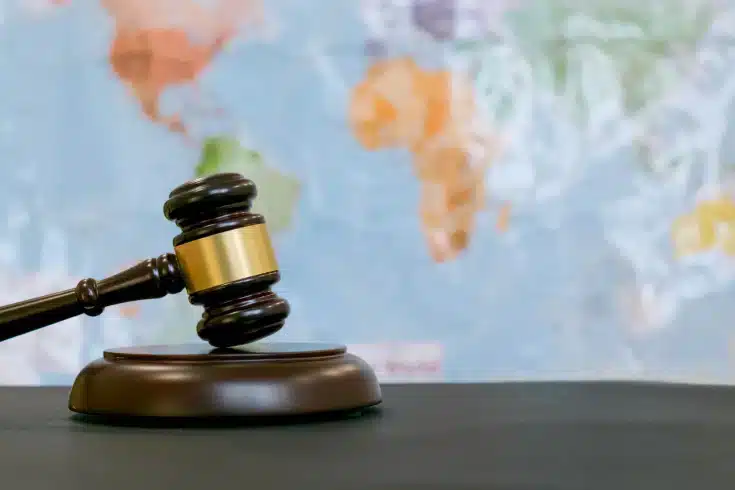Executive and Director Liability: What Every Manager Should Know – Explaining the Risks and Countermeasures

Company executives and board members are tasked with making critical decisions and executing business operations, while also constantly facing legal responsibilities and operational risks. Inappropriate judgments or actions can lead to serious consequences such as litigation, claims for damages, and disputes with shareholders or employees. Being prepared for such risks by properly understanding directorial responsibilities and implementing appropriate measures is indispensable for the stability of management and the sustainable growth of the business.
This article provides a detailed explanation of scenarios where those involved in management might be held accountable. It also introduces concrete measures that executives and board members can take to perform their duties with confidence.
Understanding Director Liability
Individuals involved in management as directors must organize issues related to director liability and take appropriate measures in advance. Being in the position of a director, one must bear the responsibility to compensate for damages in the following cases:
- When causing damage to the company
- When causing an outflow of money from the company
- When causing damage to a third party due to malice or gross negligence in the course of duty
Being pursued for responsibility by shareholders or third parties is a significant risk for directors. To grow the company and protect one’s career and assets, it is essential to implement proper risk management and prepare for liability issues.
The following individuals may be subject to director liability issues:
- Individuals in director positions at corporations (public companies, venture companies, small and medium-sized enterprises)
- Individuals who have established a company and have entrusted its management to a third party
- Individuals who have been invited to serve as external directors or auditors
- Individuals who have merely lent their names to the director registry
Since director liability can be questioned in unexpected situations, it is crucial to fully understand the cases in which one may be pursued and the methods of response.
Key Points to Be Aware of in Preparing for Directors’ Liability for Damages

There are various types of directors’ liabilities, but we will explain the preparations that directors should always be aware of, which are common to all types of damages liabilities.
Prepare Evidence
To negotiate and counter effectively when held accountable, it is essential to have evidence at hand.
There are many types of directors’ liabilities, and the evidence that should be prepared in advance varies accordingly. However, in cases where directors are pursued for liability due to breach of the duty of care or negligence in their duties, the following documents are always important pieces of evidence:
| Board of Directors Meeting Minutes | ・Records of dissenting opinions ・Directors who did not dissent are presumed to have agreed to the resolution and share joint responsibility |
| Materials used in meetings (presentation materials distributed at meetings, minutes of management meetings, documents prepared by responsible departments, written proposals, expert opinions, etc.) | ・Can confirm the rationality and objectivity of the decision-making process ・Must be sufficiently substantial to be appropriate for actual managerial decisions |
It is also important to ensure the credibility of evidence related to particularly important facts so that it can withstand legal scrutiny. Credible evidence includes the following types of documents:
- Deeds of disposal
- Contracts, receipts
- Work journals, vouchers, delivery notes
- Account books
In preparation for the possibility of being held accountable, manage and store information that could serve as evidence on a regular basis.
Organize Evidence
It is not enough to simply possess evidence; it must be organized so that it can be utilized effectively when accountability is sought.
Directors’ liability issues are not limited to breaches of the duty of care or negligence in duties but may also broadly involve liability for torts under civil law. Therefore, it is not easy to anticipate all scenarios in which liability may be pursued. When an issue arises, it is necessary to organize evidence tailored to the specific incident.
First, confirm the content of the liability pursuit and lay out evidence corresponding to the facts constituting the lawsuit, regardless of whether it is favorable or unfavorable.
Next, consider the evidence necessary to support the story you will explain during litigation.
Practically, it is advisable to consult with a lawyer as soon as you perceive a potential issue.
Case 1: Breach of Duty of Care and Fiduciary Duty by Directors
Directors may be held accountable for the responsibilities they owe to the company in the course of their duties. Here, we will discuss cases involving breaches of the duty of care and fiduciary duty.
Understanding the Breach of Duty of Care and Fiduciary Duty
Company directors are obligated to fulfill their duty of care and fiduciary duty to the company.
| Duty of Care | ・The level of care generally expected of a manager ・Includes checking for compliance violations and conflicts of interest (Japanese Companies Act, Article 330; Japanese Civil Code, Article 644) |
| Fiduciary Duty | ・The duty to act loyally and in the best interest of the company ・A concept that further clarifies the duty of care (Japanese Companies Act, Article 355) |
If these duties are breached, directors may be held liable for any resulting damages due to their negligence.
Directors must be vigilant to avoid any suspicion of breaching their duties. They must fully exercise their duty of care and fiduciary duty, be cautious to prevent any intentional or negligent actions, and ensure that they have organized documents and evidence to prove their compliance.
When Facing Allegations of Legal Violations
Choosing to engage in actions that violate laws and regulations is never permissible in business decision-making. Even in the absence of fault, there is a potential for liability, which necessitates caution.
The term “laws and regulations” here encompasses all laws and regulations that a company must adhere to when conducting its business. It is crucial for executives to thoroughly understand the specific actions that could constitute legal violations.
When Accused of Violating the Articles of Incorporation
The Articles of Incorporation are the fundamental rules of a company, outlining its purpose, organization, and methods of operation, and all officers are obligated to comply with them under the Japanese Companies Act. This includes:
- The company’s purpose and business activities
- The term of office for officers and the rules for their appointment and dismissal
- Provisions for profit distribution and stock transfers
The Articles of Incorporation are registered as a public document and also serve as a promise to shareholders and stakeholders.
Whether an action falls within the scope of the company’s purpose as stated in the Articles is judged based on the necessity in light of the objective nature of the act. However, this judgment can vary depending on individual circumstances, making it difficult to predict.
It is essential to regularly review the content of the Articles of Incorporation to ensure that management policies are consistent. Measures such as establishing a system of checks among officers and strengthening coordination with the legal department are necessary. If amendments to the Articles are needed, they should be carried out through the proper procedures at the shareholders’ meeting.
When Management Decisions Come Under Scrutiny
Directors are generally granted discretion in the execution of their duties under the principle of business judgment, and therefore are not typically held liable for damages resulting from failed management decisions. However, liability for errors in management judgment may be questioned in the following cases:
- There is a careless mistake in the process of recognizing the facts that form the basis of the management decision (such as in the collection and analysis of information).
- There is a significant irrationality in the process of decision-making based on fact recognition and in the content of the decision itself.
When making high-risk management decisions, it is crucial to thoroughly investigate case law to determine what constitutes a violation of the business judgment rule. To avoid suspicion of irrational decision-making at the time of management decisions, it is important to organize evidence such as minutes of meetings and review documents.
When Held Accountable for Conflicts of Interest Transactions
A conflict of interest transaction refers to a deal where the interests of the company and its officers are at odds. When engaging in such transactions, approval from the board of directors is required. Even with approval, these transactions must not cause damage to the company. Executives who violate this rule may be deemed negligent in their duties.
There are many instances where individuals are held responsible for conflicts of interest transactions, and the legal liabilities have become more severe. If there is a possibility that a transaction may constitute a conflict of interest, it is essential to exercise the utmost caution to prevent any harm to the company.
When Directors Are Held Accountable for Competing Transactions
Competing transactions refer to the actions of directors who engage in business within the same field as the company, either for themselves or for a third party. If conducted without the approval of the board of directors, such actions constitute a violation of laws and regulations and are considered a dereliction of duty.
In determining the responsibility for competing transactions, it is crucial to assess whether the officer’s dealings qualify as competing transactions.
Transactions are deemed competing if they are in direct competition with the business activities the company is actually engaged in and create a conflict of interest. This includes not only ongoing business activities but also those that are highly likely to be participated in or are merely temporarily suspended.
The amount of damage to the company is estimated based on the profits gained by the directors or third parties through the competing transactions.
When Facing Allegations of Breach of Monitoring and Supervisory Duties
Monitoring and supervisory duties refer to the obligation to oversee and ensure that other officers and employees do not engage in improper conduct. The assessment of whether these duties have been neglected hinges on whether the individuals being monitored are officers or employees and whether the situation warranted supervision. In essence, it is a question of the extent of the obligation to act.
To ensure thorough prevention, it is advisable to consult with an attorney. Seeking advice from an attorney and acting upon it can serve as evidence of fulfilling your monitoring and supervisory duties. Moreover, it is crucial to establish and operate a system that can detect problematic behaviors of other officers, even for matters that do not reach the board of directors.
When Facing Allegations of Violating the Obligation to Establish an Internal Control System
The obligation to establish an internal control system is the duty to create a framework necessary to ensure the propriety of a company’s operations. Directors may be accused of breaching this obligation if they fail to construct such a system or if the system in place is inadequate, preventing the prevention and addressing of misconduct by officers and employees.
In determining a breach of obligation, the following cases are considered not to constitute a violation:
- When a management system capable of preventing normally anticipated fraudulent activities has been established
- When there are no special circumstances that would have required the directors to foresee the occurrence of fraudulent activities
It is essential to deliberate with professionals, taking into account the generally required standards, the specific circumstances of the company, and official guidelines.
Case 2 of Director Liability: Statutory Special Liability

Here, we will explain cases where directors are held accountable for statutory special liability.
Liability for Providing Benefits
When a company provides benefits related to the exercise of shareholder rights, the directors involved are jointly and severally liable to pay the company an amount equivalent to the value of the benefits provided.
For example, this includes cases where a company gives money to shareholders as hush money to prevent the disclosure of a manager’s personal scandal at a shareholders’ meeting.
When conducting transactions that could be suspected of providing benefits, it is essential to proceed with caution. It is necessary to clarify that the transaction is a legitimate compensation for services necessary for the company and to organize the situation to avoid suspicion.
Liability Related to the Distribution of Surplus Funds
Distribution of surplus funds refers to the distribution of surplus funds or expenses incurred in acquiring treasury shares.
The issue arises when the distribution of surplus funds exceeds the distributable amount on the effective date of the distribution. The executive officers who performed the relevant duties and the directors who proposed the resolution are jointly and severally liable to pay the company.
The amount payable is equivalent to the book value of the money or other benefits received by the recipient.
To avoid liability, directors and accountants should carefully confirm the accuracy and appropriateness of financial statements and dividend proposals before proceeding with the procedures.
Responding to Directors’ Liability Claims Against the Company
Here, we explain the actions that directors should take when they are pursued for liability to the company.
What is Required for Initial Response
When a shareholder initiates a lawsuit or similar action, it is crucial to share the situation with other board members and discuss a response strategy. To avoid a derivative lawsuit, it is necessary to analyze the content of the liability pursuit and investigate the facts within 60 days from the claim, aiming for a prompt decision on the policy. Not only the director targeted by the claim but also other directors must cooperate to consider an appropriate response.
In responding to director liability pursuits, it is common to seek legal counsel from a lawyer other than the company’s advisory lawyer. This is because the company and its directors may be in a conflict of interest situation, and the company’s advisory lawyer should avoid representing the directors.
Methods for Partial Exemption of Liability
Even if a director is found liable, there are ways to partially exempt them from responsibility if they acted in good faith and with minor negligence.
The following liabilities are not subject to partial exemption, but other liabilities may be partially exempted:
- Provision of benefits
- Special liabilities such as responsibility for distributing dividends beyond the distributable amount of retained earnings or for compensating deficits
- Liabilities related to conflict of interest transactions involving direct dealings by the director
Exemption of liability can be done using the following methods:
- General meeting resolution
- Board of directors’ resolution based on the authorization in the articles of incorporation
- Liability limitation agreement
However, it is important to note that practical use of partial liability exemption is rare. This is because it is preferable to reduce liability after the court has determined the content of the responsibility, and it is difficult to overturn the confirmed amount of damages.
Methods for Complete Exemption of Liability
To completely exempt a director from liability, the consent of all shareholders is required. Therefore, in practice, there is little room for application in publicly traded companies.
Even if there is a 100% shareholder, a declaration of exemption from the company is necessary for liability exemption.
Application for Provision of Security
A director can apply to the court to order the shareholder who initiated the lawsuit to provide adequate security. If the court issues this order and the shareholder fails to provide security, the shareholder representative lawsuit can be dismissed before the content is examined.
However, it is important to note that the application for the provision of security is limited to cases where the shareholder has initiated the lawsuit with malice.
Directors’ Liability for Damages to Third Parties: Key Points and Considerations
Directors may bear special responsibility under Article 429 of the Japanese Companies Act (2005) if they cause damage to third parties (such as creditors). This section explains the nature of the potential liability for damages that directors may owe to third parties and points to be aware of.
There are Indirect and Direct Infringements
The “damages” defined in Article 429 of the Japanese Companies Act include both indirect and direct infringements. The details of these infringements are as follows:
| Details | Typical Examples of Duty of Care Negligence | |
| Indirect Infringement | When negligence in duty reduces the company’s assets, causing damage to third parties: The third party must prove the decrease in the value of their claim | Reckless management, business expansion, failure in new ventures, unfair low-price disposal, unplanned financial lending, conflicts of interest |
| Direct Infringement | When negligence in duty directly causes damage to third parties: The company’s financial situation is not considered | Transactions with no prospect of performance, illegal acts, fraudulent investment solicitation, infringement of employees’ rights (overtime, harassment, etc.) |
First and foremost, it is crucial to understand the circumstances under which directors may be held responsible.
Beware of False Statements in Financial Documents
Directors may make false statements regarding significant matters in certain documents, such as financial statements, or engage in false registration or public notices. If this causes damage to third parties, they are liable to compensate as stipulated by the Japanese Companies Act.
Liability for third-party damages due to negligence in duty requires “malice or gross negligence.” However, in cases of false statements, directors may be held liable even for slight negligence (Japanese Companies Act, Article 429, Paragraph 2).
Only those involved in the decision-making of the false statements are liable. Other directors who merely voted in favor of the resolution approving the false statements are not liable, but they may be pursued for breach of their supervisory duties.
Utilizing Corporate Indemnification Agreements and Directors & Officers (D&O) Liability Insurance

When it comes to measures for addressing the pursuit of executive responsibility, corporate indemnification agreements and Directors & Officers (D&O) liability insurance are highly valuable options to consider. In this section, we will explain the basics of these two systems and their implementation.
What is a Corporate Indemnification Agreement?
A Corporate Indemnification Agreement is a contract in which a company agrees to compensate for the following types of expenses:
- Costs incurred by officers in dealing with liability investigations due to suspected violations of laws and regulations in the execution of their duties
- Expenses for compensating damages caused to third parties in the execution of duties, and settlement amounts in disputes over such compensations
Since it does not require provisions in the articles of incorporation, it can be introduced with a resolution of the shareholders’ meeting (or the board of directors in companies with an established board). The content of the resolution includes requirements and targets, the upper limit of the amount, and the timing of compensation.
Officers bear the risk associated with business decision-making, but with this agreement in place, it can alleviate concerns about risk, making it easier to recruit excellent talent as officers and directors. Furthermore, the Corporate Indemnification Agreement allows officers to make optimal decisions for the company’s benefit without excessive fear of risk. This enables proactive management and is expected to contribute to the growth of the company.
What is Directors and Officers (D&O) Liability Insurance?
Directors and Officers (D&O) Liability Insurance, also known simply as D&O Insurance, is a type of insurance policy that a company enters into with an insurance company. It is designed to cover damages that arise from the responsibilities borne by directors and officers in the execution of their duties.
The decision on the specifics of the D&O Insurance policy requires a resolution by the shareholders’ meeting (or the board of directors if the company has one). The details that need to be resolved in the insurance policy include the following:
- Insurance company
- Insured parties
- Insurance premium
- Insurance period
- Reasons for payment
- Payment limits
- Scope of coverage
- Exclusions and special provisions
The insurance covers liabilities such as compensation payments, settlement amounts, and legal fees including attorney’s fees.
When directors face litigation risks, direct compensation by the company can impose a significant financial burden. D&O Insurance mitigates this burden and protects the company’s capital. Having D&O Insurance in place demonstrates that a company prioritizes risk management and maintains a sound governance structure, which can enhance trust from investors, shareholders, and business partners.
Comparing Corporate Indemnification Agreements and Directors & Officers Liability Insurance
Corporate indemnification agreements and directors & officers (D&O) liability insurance may seem similar at first glance.
However, there are several differences between the two systems as outlined below.
| Parties to the Contract | Indemnifying Party | Scope of Indemnification | Extent of Indemnification | Degree of Conflict of Interest | Advance Payment of Costs | |
| Corporate Indemnification Agreement | Company and Officers, etc. | Company | As stipulated in Article 430-2, Paragraph 2 of the Japanese Companies Act | Can be flexibly determined | Significant | Possible |
| Directors & Officers Liability Insurance | Company and Insurance Company | Insurance Company | As stipulated in the insurance contract | Subject to restrictions under insurance law or contract | Relatively small | Not possible |
For more details on both systems, please refer to the following article.
Key Points in Implementing Corporate Indemnification Agreements and Directors & Officers (D&O) Liability Insurance
Corporate indemnification agreements and Directors & Officers (D&O) Liability Insurance are mechanisms that can provide incentives for talent retention and enable directors to perform their duties without hesitation. Since each coverage has its strengths and weaknesses, a system design that utilizes both can be effective.
First, consider the relatively less conflict-prone and easier-to-implement Directors & Officers (D&O) Liability Insurance. Then, while excluding items already covered, introduce a corporate indemnification agreement.
When implementing these systems, it is crucial to shape them in a way that is easily understandable and acceptable to stakeholders.
Summary: Consult with an Attorney for Director Liability Measures
Individuals involved in management as directors constantly face the risk of being held liable for damages to the company or third parties. To protect the growth of the company and their personal assets, it is essential to fully understand the circumstances under which they may be pursued for liability and to take appropriate measures.
In addressing director liability issues, preparation of evidence, dispute resolution, and legal expertise-based decision-making in daily management duties are required. Therefore, when considering measures for director liability issues, it is advisable to consult with an attorney.
By establishing a system to consult with an attorney early on, you can correctly understand the mechanisms of director liability and make appropriate decisions prepared for risks.
Guidance on Measures by Our Firm
Monolith Law Office is a law firm with high expertise in both IT, particularly the internet, and legal matters. In advancing family governance, there are times when it becomes necessary to create contracts. Our office handles the creation and review of contracts for a wide range of cases, from Japanese Tokyo Stock Exchange Prime-listed companies to venture businesses. If you are having trouble with contracts, please refer to the article below.
Areas of practice at Monolith Law Office: Contract Creation & Review, etc.[ja]
Category: General Corporate
Tag: General CorporateIPO





















